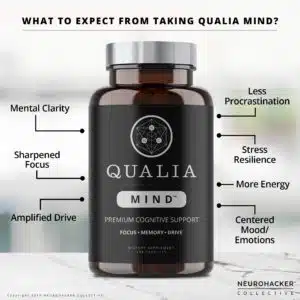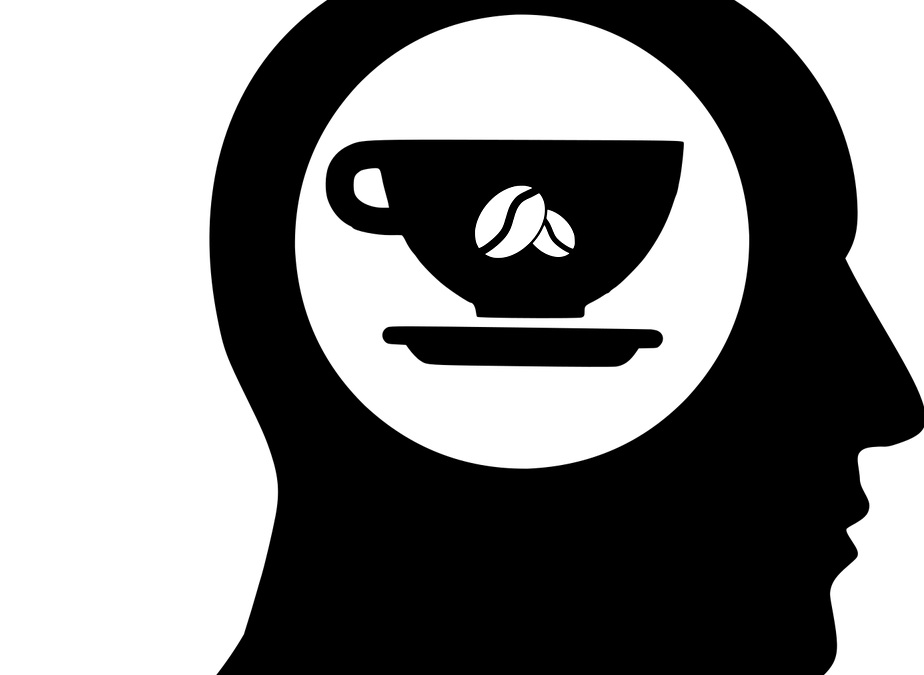Let’s face it, we love our coffee and we love our caffeine! It’s that little bit of a hit that we need in order to wake up and think. We are willing to sit in our cars in long lines for it, we tell our spouses not to talk to us until we’ve had our coffee, we learn new languages in order to get our favorite drinks, we socialize around it, and hey we even have our favorite slogans about caffeine put on our coffee mugs or have them printed on a t-shirt. Geese it’s even become a symbol of national identity, where we recognize the Canadian flag, hockey sticks, and then a foreign-owned coffee company as part of our patriotic duty to share with the world.
So is there really anything on this planet that could be better than coffee?
Well, maybe nothing better than when it comes to taste but… let’s look at what other substances can make us alert without causing harm. In fact, when it comes to thinking and functioning there is a whole area of compounds that fall into a category called nootropics AKA brain supplements. It has been the unfair advantage to businessmen, celebrities, and people in the know for years now! So why haven’t you heard about it and what are the Qs and As to gaining a superpower more powerful than coffee?
Q: How many of you need your hit of caffeine in order to start your day or even function in the morning or that after lunch phase of your day?
A: Well you’re just like everyone around because approximately 80% of the world’s population consumes a caffeinated product every day and 90% of adults in North America consume caffeine on a daily basis
Q: So what is the difference between “brain supplements” and “smart drugs”?
A: There are several but to keep things simple supplements are common compounds that usually can be found in food, are usually building blocks in different metabolic pathways, and are not patented. Drugs are regulated substances that are usually always patented and are often powerful inhibitors of a receptor, enzyme, or protein. Due to the fact, one is usually a building block to a pathway and the other powerfully inhibits a pathway there is usually more risk of side effects with drugs. Inhibition of a pathway is useful when the goal is to stop something pathological from happening and adding more of a substance that enhances the likelihood of improved performance is commonly more useful the goal is peak performance.
Q: …but what about stimulates?
A: Yes, you are correct! Caffeine is both a drug and a stimulant so it falls in the grey zone. Stimulants often bind to a receptor in order to increase or decrease the efficiency of the receptor. The most common problem is, of course, side effects especially from long-term use where there is downregulation of the receptors often leading to dependencies or addictions. Caffeine is, of course, a low-grade stimulant and on the cost-benefit ratio it of course may or may not be a good idea to take it depending on the person using it.
Q: What are other ways nootropics work?
A: One of the most common ways is to decrease inflammation. We live in a world where a substantial amount of the food and activities we partake in stimulate our nervous systems to produce inflammation. In fact, a lot of your favorite caffeinated beverages are going to cause your body in one way or another to produce inflammation. It’s kind of like they are both the disease and cure in one well-packaged bottle. No wonder they are so addictive!
A: By improving fuel delivery to the brain. The brain is the greedy master of the body and requires about a quarter of all the energy taken in by the human body. Nootropics may improve the delivery of oxygen or fatty acids. Some may also enhance the performance of your cells’ energy factory called mitochondria.
A: Once again many supplements are often building blocks or cofactors for building larger molecules or getting an important chemical reaction/pathway to happen. This means they can increase the level of neurotransmitters like dopamine, serotonin, acetylcholine, GABA, and norepinephrine.
A: Improved blood flow. Several different chemicals can cause the tiny little blood vessels in your brain to constrict or dilate.
Q: Can’t some of these cause side effects in people
A: Absolutely they can! A person that has dysregulation in the vasoconstriction and vasodilation of their blood vessels can obviously develop or have worsening, such as headaches. A person who is prone to producing too much of a certain neurotransmitter can develop side effects. There is always a risk that anything you ingest can cause side effects and a person should always discontinue taking any product if they notice worsening of symptoms.
Q: Wow, should I be worried about horrible side effects?
A: Just like taking caffeine and getting a reaction to it, side effects if they occur are usually very low grade. If concerned always seek medical advice.
Q: Ok, what are the potential upsides of nootropics?
A: People commonly report and many of the nootropics have been clinically proven to improve memory, creativity, focus, concentration, computation, and the speed your brain processes information.
Q: Am I going to develop superpowers like that movie?
A: If by superpowers you mean like your coffee then yes! If you mean like out of a superhero’s movie then sorry, no. Nootropics at least in the sense we are talking about are foods and supplements that help improve function with no or limited long-term side effects.
Q: Will I crash on them like I crash after my caffeinated drinks?
A: No! Even the brands that contain caffeine will claim that it is a low sustained level of improved performance without the jolt and dips of coffee. This is because they have found forms and methods to release the caffeine slowly.
Q: What are some of the common nootropics that I should read up on?
A: 5-HTP, Acetyl L-Carnitine, Alpha-Glycerylphosphorylcholine, Alpha Lipoic Acid, Artichoke Leaf Extract, Ashwagandha, Bacopa monnieri, Caffeine (Guarana, Green coffee bean, coffee arabica), Cat’s Claw, CBD, coleus forskohlii, CoQ10, GABA, Ginko Biloba, Ginseng, Huperzine-A, Kanna, Kanna, L-Carnitine L-Theanine, L-Tryptophan, Lecithin, Lemon Balm, Lion’s Mane Mushroom, N-Acetyl-L-Tyrosine, Taurine, Kanna, Magnolia, MCT Oil, Mucuna pruriens, NADH, Niacin, Oatstraw, Oxiracetam, Passionflower, Phenibut, Phenylalanine, Phosphatidylserine, Resveratrol, Rhodiola, Rosemary, SAMe, St. John’s Wort, Theobromine, Turmeric, Tyrosine, DHA, Celastrus paniculatus seed extract, Pyrroloquinoline Quinone disodium, Huperzia Serrata Leaf extract, Valerian, Vinpocetine, Vitamin C, Vitamin D, B-Vitamins, Yerba Mate
Q: Great stuff! Can you recommend a quality brand to try
A: One of the best blends out there would have to be Neurohacker’s QUALIA MIND
TRY IT NOW

____________________________________________________________________________________________________



